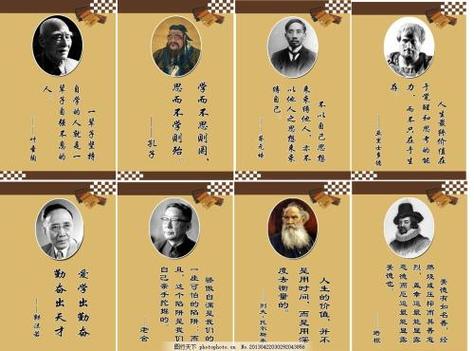2023年12月23日发(作者:屋檐的檐怎么组词)

名词单复数规则
名词与可数名词单复数
一、分类:可数名词和不可数名词
1、可数名词:一个一个数得出来的,有复数形式
apple --- two apples bus ---two bus chair --- two chairs
box --- two boxes
2、不可数名词:无法一个个数出来的,无复数形式
1) 多数物质名词(无法分割,数不出)
water ice air paper(纸张)milk glass(玻璃)
2) 多数抽象名词(虚无缥缈,数不出)
love friendship(友谊)fun(乐趣)luck music health(健康)
3) 太多太细(数不清)
sand salt hair grass(草)rice snow
4) 总称类名词(表全体,无法数)
food(食物)waste(垃圾)furniture(家具)poetry(诗歌)
3、多数名词既作可数又作不可数
apple
作可数:I want to eat an apple.
作不可数:I want to eat apple.
cake
作可数:a cake 一个(整个)蛋糕)
作不可数:a piece of cake 一块蛋糕
例子:I want to buy a cake. 我想买一个蛋糕。(可数)
I want to eat cake. (不可数)
I want to eat a piece of cake. (不可数)
4、有些不可数名词在特定情况下有复数形式
water--- waters(水体)wind --- winds(一阵一阵的风)
sand --- sands(沙滩)tea --- two teas(两份茶水)
5、可数名词通常不单独使用,需在前面加限定词(冠词、代词、
数词、量词等)或用复数形式,省略冠词除外
There are five students in the classroom.(加数词)
There are a lot of students in the classroom.(加量词)
A hor is very uful.
This hor is very uful.
Hors are very uful.
Hor is very uful. (╳)
二、可数名词的复数读音
1、大于一即算复数,如one and a half hours 一个半小时
2、元音字母有五个:a、e、i、o、u
3、元音字母中,u不一定都发元音音标开头
uncle(发元音音标开头)
usually(发辅音音标开头)
university(同上)
4、y虽为辅音字母,放词尾常发元音
baby sky
5、名词复数的读音:清音后读/s/,元音或浊音后读/z/,“嘶”(/s/、/z/、/?/、/?/、/t ?
/、/d?/)音后读/iz/
books / b?ks/(读清音)brothers /'br?e?z/ (读浊音)
beds /bedz/(读浊音)oranges / '?r?nd?iz /(“嘶”音后,读/ iz /)
三、规则变化
1、一般直接加-s
book --- books table --- tables orange --- oranges
2、辅音加y结尾的词,把y改成i再加-es
baby --- babies city --- cities
lady --- ladies sky --- skies
注:元音加y结尾的词,直接加-s
boys days
为什么要把y先改成i再加-es?
原因:
1)y是半元音,即有时发辅音,有时发元音,若不变i会被误认为发辅音
year(发辅音)yellow(发辅音)
baby(发元音)city(发元音)
babys(被误以为y发辅音)
citys(被误以为y发辅音)
2)如果不变成i会违反英语拼写规则
英语拼写规则:辅音字母写在一起不能超过三个,如school,spring,street
skys(四个辅音字母写在一起)
3、以发“嘶”音的字母(s、x、sh、ch)结尾的词,加-es,读成/iz/
bus --- bus box --- boxes brush --- brushes watch ---
watches
注:stomach因为ch不发“嘶”故直接加-s,即stomachs
为什么要加-es?
1)为了让听者能辨别是单数还是复数
boxs(听不出是复数)boxes(一听就知道是复数)
watchs(听不出是复数)watches(一听就知道是复数)
2)为了拼写上不被误认为是双写s或违反拼写规则
boss --- boss(bosss违反拼写规则,同一个字母最多连写两个,如apple)
bus若加-s,变成buss,会被误以为buss是一个单词
bus(一看就是bus的复数)
4、辅音字母加o结尾,多数加-es,少数(特别是外来词和缩略词)加-s
加-es:tomatoes potatoes heroes
加-s:pianos(外来词,来自意大利语
photos(photograph的缩写)
注:元音加o结尾的,直接加-s
zoos radios
5、f或fe结尾的词,多把f或fe改成v再加-es(特别是发长音的),少数直接加-s (多为发短音),极个别有两种形式
加-es:knife --- knives wife --- wives
wolf --- wolves leaf --- leaves
加-s:roofs屋顶proofs证据
两种形式均可:handkerchiefs/ handkerchieves手帕
为什么要把f或fe变v再加-es?
原因:方便发音,以免断气
knifes(读完没气了)knives(读完肚子还有气)
6、不规则变化
1)有man的单词,把man变men
man --- men woman --- women(注意读音)
policeman --- policemen Englishman --- Englishmen
注:German不属于词类,故直接加-s,即Germans
2)oo变ee(鹅用牙齿咬你脚)
goo --- gee鹅
tooth --- teeth牙齿
foot --- feet脚
3)公牛孩子和老鼠,复数最特殊
ox --- oxen公牛
child --- children 孩子
mou --- mice 老鼠
4)单复数同形
sheep绵羊fish鱼deer鹿
-e结尾的表某国人的名词:Chine,JapaneVietname(越南人)
3、有些名词常以复数形式出现(多为由两部分组成的名词)
,
glass眼镜(两块镜片)trours裤子(两个裤筒)
pajamas睡衣(连衣带裤)
(四)不可数名词
1、要表数量时需加量词,表“几个”含义,量词需变复数
water
a bottle of water two cups of water
bread
a piece of bread two pieces of bread
paper
a piece of paper two pieces of paper
2、仅仅表示一些,可some、much、a lot of修饰(不可用many)
some water一些水much water 一些水 a lot of water很多水
3、有时不可数名词也可以变复数,表“多份”、“很多”
two beers两份啤酒
two coffees 两份咖啡
waters各种各样的水
名词单复数练习:把下列名词变成复数
coat _______ skirt _______ hou _______ car ________ brush
_______ box _________ toy _______ umbrella _________ ticket ________
class _________ classroom _______ teacher _________ son ___________
student _______ job _________ orange_________ class __________
monkey __________ piano _________ child ___________
country _________ family ___________ toy ____________ foot
___________
fox
Japane ___________
woman
radio ____________photo
___________
____________ tomato ____________
___________ _____________knife
sheep_____________
二、一般现在时
注:英语的时间要通过谓语动词体现出来(形合句特点),中文
则不用(意合句)中文:我昨天去学校。
我今天去学校。
我明天去学校。
英语:I went to school yesterday.
I go to school today.
I will go to school tomorrow.
1、作用:表示一般性、经常性、习惯性动作或状态,偶尔表将来
I get up early every day.
She is my English teacher.
2、构成:
1)be动词:am、are、is
am用于第一人单数:即I
I am a student. = I’m student.
I’m not a student.
are用于第二人称及所有复数:即you,we,they
You are late. = You’re late.
We are students. = We’re students.
They are not here. = They’re not here.
is用于第三人称单数:即he,she,it
He is a student.
She is a worker.
It is my book.
2)其他动词:动词原形(按字典的写法)
We go to the park every week.
注:has用于第三人称单数,have第三人称单数以外的情况
He has a new bike.
We have a new school.
3)第三人称单数:需在动词后加s(同名词变复数的方法)
He goes to the theatre every week.
She does morning exerci every day.
John plays the piano every night.
3、常用时间状语(表习惯性)
always总是、often经常、usually通常、every
morning/day/week每天早上/每天/每周、sometimes有时、from
time to time时不时、twice a week一周两次、ldom
很少、never从不
4、一般现在时的具体应用:习惯真理和瞬间,书评将来也可用
1)表习惯、经常性的事
He gets up at 7:00 every morning.
2)表示真理性、客观性的事
Light goes faster than sound. 光比声音传播得快。
The moon moves round the earth. 月亮绕着地球转。
Knowledge is power. 知识就是力量。
3)表瞬间发生的事
Tom pass the ball to John. John shoots. What a goal!
汤姆传球给约翰。约翰射门。球进了!
4)用写书评、读后感
I finished reading a book yesterday. It is about a little princess.
Her mother dies when she is young.
5)表示安排好的将来一定发生的事(详见一般将来时专题)
Now it’s 8:00. The train leaves at 10:00.
The final exam is in next week.
一般现在是练习:用所给词的正确形式填空
1. We often___________(play) on the playground.
2. He _________(get) up at six o’clock.
3. __________you _________(brush) your teeth every morning.
4. What_________ (do) he usually _____(do) after school?
5. Danny ________(study) English, Chine, Maths, Science and
Art at school.
6. Mike sometimes __________(go) to the park with his sister.
7. At eight at night, she ________(watch) TV with his parents.
8. ________ Mike________(read) English every day?
9. How many lessons _________ your classmate__________(have)
on Monday?
10. What time ________his mother_________(do) the houwork?

本文发布于:2023-12-23 01:20:27,感谢您对本站的认可!
本文链接:https://www.wtabcd.cn/zhishi/a/170326562742828.html
版权声明:本站内容均来自互联网,仅供演示用,请勿用于商业和其他非法用途。如果侵犯了您的权益请与我们联系,我们将在24小时内删除。
本文word下载地址:名词单复数规则.doc
本文 PDF 下载地址:名词单复数规则.pdf
| 留言与评论(共有 0 条评论) |